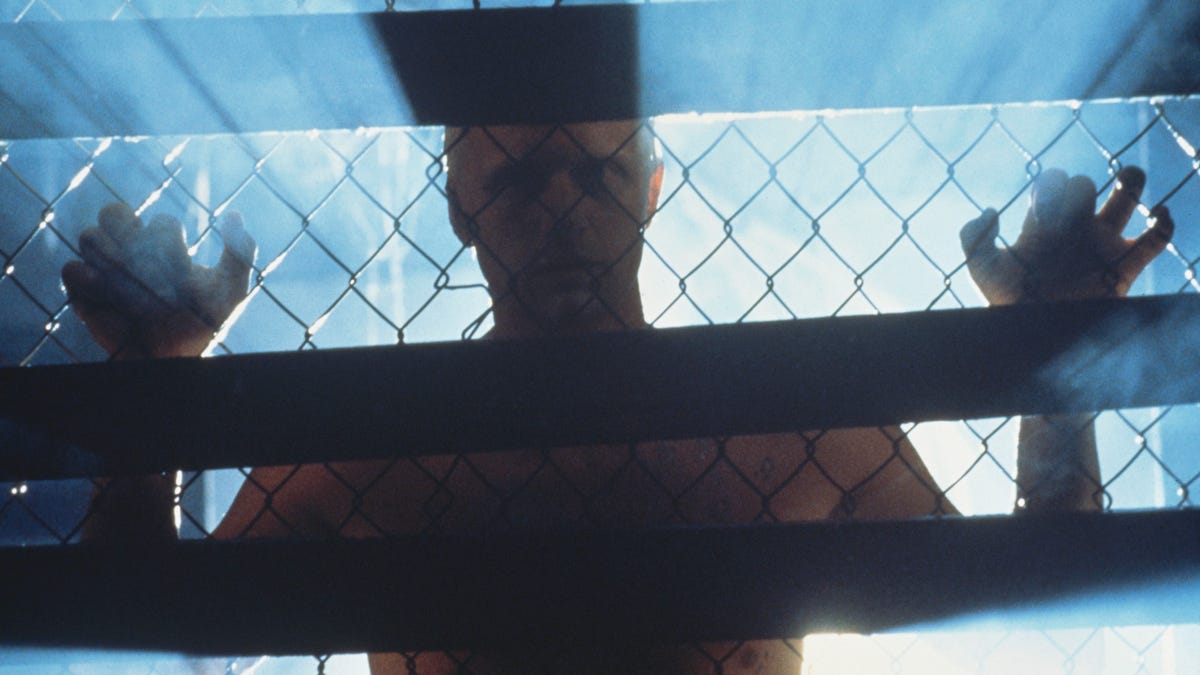Do I need to watch 'Blade Runner' before seeing the sequel?
Yes and no, says Denis Villeneuve, director of "Blade Runner 2049".

Don't feel bad if you've never seen "Blade Runner". We all have our blind spots, and you've only had 35 years to get round to it. But now that the sequel "Blade Runner 2049" is finally here, do you need to have seen the original film to enjoy the sequel?
"Don't cry, I'm sure there are loads of people who haven't seen it."
Yes and no, says Denis Villeneuve, director of "2049".
"That was one of the challenges ... to create a movie that would be in total relationship to the first one, but could stand on its own," he said when we met to discuss the film in London recently. "I will say that people don't need to see the first movie to understand my movie."
People entering the "Blade Runner" universe for the first time with "2049" are introduced to this richly imagined future world through the eyes of a new character, Officer K, played by Ryan Gosling. He is our guide as he encounters characters from the first film and learns about the events of the original story. So no, you don't absolutely have to watch Ridley Scott's 1982 original.
But there's a good reason why you should: it's really good.
"I would recommend [seeing] the first movie because I think it's a masterpiece," Villeneuve says. "One of the things I said to myself that could be a positive effect of doing [the sequel] is to to put back the spotlight on the original movie, for the generation that are too young to have seen it on a big screen or even at home.
"It's a really unique piece of art."
Harrison Ford is the android-stalking bounty hunter Rick Deckard in 1982 sci-fi classic "Blade Runner".
Seeing the original will also help you understand the futuristic setting of the film, which doesn't quite match with our own world. In the 35 years since the original film came out, the future imagined by Ridley Scott, designer Syd Mead and the film's creators hasn't come to pass in quite the form they imagined. We don't have flying cars or human-like robots, but at the same time, their imagined future doesn't have the internet and smartphones . So according to Villeneuve, the sequel takes place not in our future, but in an alternate future extrapolating upon the world seen in the original film. That's why there are no iPhones, but there are adverts for defunct companies like Pan Am and Atari.
If you don't have time to watch the original movie, you could get a feel for this fascinating future by checking out the short promotional films released in the run-up to the new movie. They introduce you to the world of "Blade Runner", and in the animated short "Black Out 2022" you'll even learn why digital data is less important than in our world.
If you can make the time to watch the original, all you have to do is decide which version to watch. Over the years, "Blade Runner" has had more cuts than a clumsy knife-sharpener. Luckily, there are only two edits you need to worry about: the original 1982 Theatrical Cut, which was released in movie theatres, and the recent Final Cut, which combines all the subsequent tinkering and re-editing into one definitive version.
In terms of getting ready for the sequel, either would work. Fans deride the Theatrical Cut for its over-explaining voiceover and studio-imposed happy ending, but it still packs a punch if that's the only version you have access to. The Final Cut removes the voiceover and, more importantly, creates ambiguity around who is or isn't an android -- but that theme isn't critical to the sequel, so the choice is yours.
Oh, and one last thing: now's a great time to check out the original book where it all began. For all its big questions about free will and what it means to be human, Philip K Dick's 1968 novel "Do Androids Dream of Electric Sheep?" is a remarkably easy read. A trim 180-odd pages written in a simple, clear style with a surprising amount of action, the novel is a great starting point into Dick's searingly powerful, hugely influential and fiercely relevant work.
"Blade Runner 2049" hits theatres worldwide starting 5 Oct. The Theatrical Cut and Final Cut of the original "Blade Runner" are available on DVD and Blu-ray and online, or you can buy all the different edits of the film on a five-disc collector's edition package.
Tech Culture: From film and television to social media and games, here's your place for the lighter side of tech.
Batteries Not Included: The CNET team shares experiences that remind us why tech stuff is cool.

